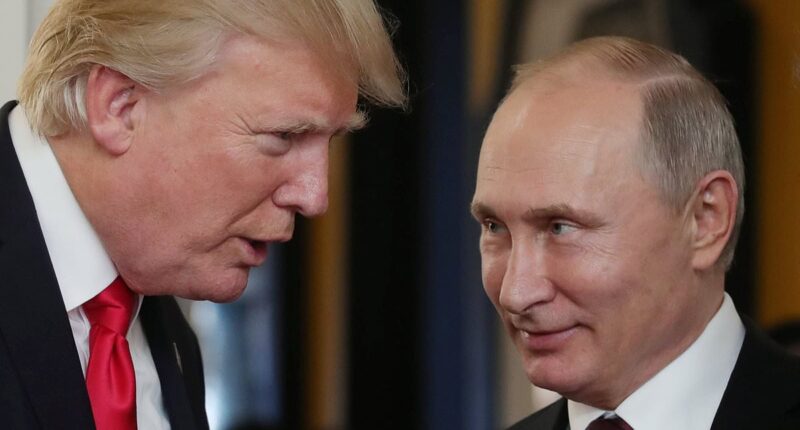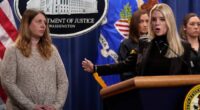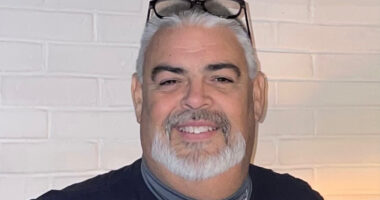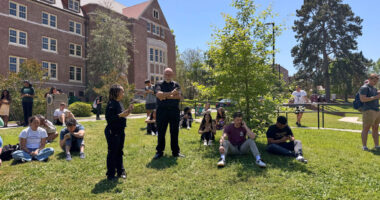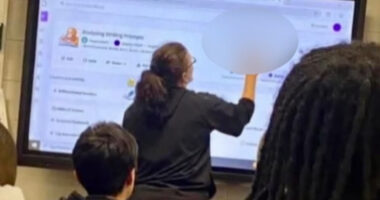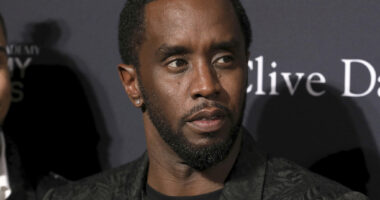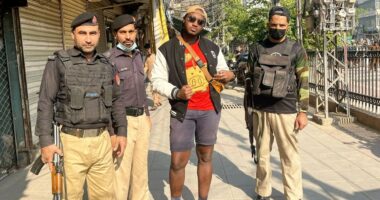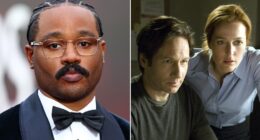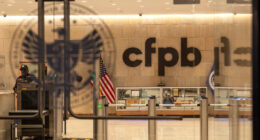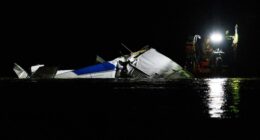Experts caution that Vladimir Putin is engaged in a strategy of complimenting and pacifying Donald Trump through discussions about resolving the conflict in Ukraine. There are concerns that such an agreement may not prevent further invasions by the Kremlin in the future.
In a significant development, the US President and Russian leader had a lengthy and highly effective telephone conversation recently. They both agreed that negotiations to bring an end to the conflict should commence without delay.
However, it is anticipated that any peace accord, which will likely be enforced upon Ukraine, will involve Russia retaining the territories it has seized since 2014, including the Crimean peninsula. This outcome would deal a severe blow to Kyiv after years of striving for independence.
Russian political analyst Tatiana Stanovaya warned Putin was fully prepared for the talks to fail, as the Kremlin believes that ‘there is nothing the West can do that would reverse Russia’s territorial gains and prevent Ukraine’s collapse in the long run’.
She wrote on X: ‘Putin will continue to flatter and appease Trump, offering concessions that Trump will portray as a HUGE SUCCESS and a WONDERFUL DEAL.
‘But these concessions – such as a ceasefire – will not deter Russia from its ultimate goal: securing a “friendly” Ukraine on its terms.’
The Institute for the Study of War (ISW), a US policy research organisation, said ‘a premature deal risks letting Putin off the hook […] before Ukraine and the United States attain a true position of strength’.
British Defence Secretary John Healey said it was for Ukraine to decide the timing and terms of any deal. Since the conflict began in February 2022, ministers have insisted Britain should support Ukraine for as long as it wanted to defend itself.
Downing Street long declared that Russia should not be rewarded for its illegal invasion by being permitted to retain territories it has taken – a move UK officials fear could persuade Putin to use force again in the future.

Experts have said that Vladimir Putin is appeasing Donald Trump with the peace talks, adding that a deal would not stop the Kremlin’s warmongering and could result in more invasions in the future (Putin and Trump pictured together in 2017)

Ukrainian forces firing a 120mm mortar towards Russian positions at an undisclosed location near Chasiv Yar in the Donetsk region, on February 8

US Defense Secretary Pete Hegseth at the start of the Ukraine Defense Contact group meeting at NATO headquarters, where he said realistically Ukraine couldn’t realistically hope to return to previous borders
‘You […] have to be wide-eyed to the fact that if you are ceding territory to an aggressor, that will be seen as rewarding the aggressor,’ Penny Mordaunt, the former UK House of Commons leader, also told Times Radio.
President Trump’s remarkable announcement, in which he declared ‘the war must end’ and said he expected to meet with Putin in Saudi Arabia, came hours after a series of stunning policy U-turns from US Defence Secretary Pete Hegseth.
Speaking at a summit in Brussels, Mr Hegseth left senior military figures ashen-faced as he shattered Nato unity over Ukraine. His remarks placed the future of the alliance, formed after the Second World War, in grave jeopardy.
The former Fox News presenter, thrust into international politics by Mr Trump despite a complete lack of government experience, dismissed Ukraine’s aspiration to recover its captured territory as ‘illusionary’.
He also ruled out the country joining the coalition, a long-held hope of Kyiv.
Instead, Ukraine will receive security guarantees. But, Mr Hegseth said, the US will not be part of any Nato peacekeeping force there, leaving it to Britain and others to defend the country.
The policy reversals on Ukraine positioned America closer to the Kremlin than its Western allies, including Britain, leaving the Kremlin to mock that Nato had ‘written off’ Kyiv.
Mr Trump told reporters: ‘We want to end that war – that war is a disaster.’
He predicted a ceasefire in the ‘not too distant future’, adding that Ukraine was unlikely to get all of its land back and it was not ‘practical’ for it to join Nato.

Firefighters work at a site of a residential area hit by a Russian drone strike, amid Russia’s attack on Ukraine, in Sumy, Ukraine, in this handout picture released on February 10, 2025

Ukrainians ride a tank in the Kharkiv region, eastern Ukraine, 10 February 2025, amid the ongoing Russian invasion
He posted online: ‘We want to stop the millions of deaths taking place in the war with Russia/Ukraine. President Putin even used my very strong campaign motto of “COMMON SENSE”. We both believe very strongly in it. We agreed to work together, very closely, including visiting each other’s nations.’
Ukrainian president Volodymyr Zelensky tried to put a positive spin on the developments. Following a ‘meaningful conversation’ with the US President, he said: ‘We long talked about opportunities to achieve peace, discussed our readiness to work together at the team level, and Ukraine’s technological capabilities.
‘I am grateful to President Trump for his interest in what we can accomplish together.’
He added: ‘No one wants peace more than Ukraine. Together with the US we are charting our next steps to stop Russian aggression and to ensure a lasting, reliable peace. As President Trump said, let’s get it done.’
Putin’s talk with Trump reportedly left the Russian despot with a sense of satisfaction.
‘[Putin] doesn’t particularly need Ukrainian territories, but he needs respect from America. He dreams of deciding the fate of the world together with the US president,’ Mikhail Kasyanov, who served as Putin’s first prime minister, told the Times.
Concerns have also been raised that peace talks won’t stop Putin from launching more invasions in the future if he gets to keep the annexed territory.
‘The main question is how to deter Putin if he – should a truce agreement be reached, which I doubt – tries once again to seize a larger part of Ukraine’s territory,’ Oleksandr Merezhko, head of the Ukrainian parliament’s foreign affairs committee, told the Kyiv Independent.
‘What could realistically stop him? In my opinion, only NATO membership,’ he added.
While speaking at NATO headquarters in Brussels, Hegseth said that NATO membership was not realistic for Ukraine and said that Kyiv could not realistically hope to return to previous borders.
‘We want, like you, a sovereign and prosperous Ukraine. But we must start by recognising that returning to Ukraine’s pre-2014 borders is an unrealistic objective,’ Hegseth said.
‘Chasing this illusionary goal will only prolong the war and cause more suffering.’
Russia in 2014 annexed Crimea, which Ukraine and many Western countries consider to be occupied Ukrainian territory.
Hegseth said any durable peace must include ‘robust security guarantees to ensure that the war will not begin again’.
But he said US troops would not be deployed to Ukraine as part of such guarantees, instead suggesting that ‘capable European and non-European troops’ could take over the task as peacekeepers.
He said those peacekeepers should not be covered under the NATO article that states if one member state is the victim of an armed attack it should be considered an attack on all members.
At least 100,000 troops on the ground as well as significant maritime and air support would be needed as a credible deterrent, according to land warfare expert Ben Barry.
‘But, without a US presence and active US involvement, such a deterrent force would be very vulnerable to all sorts of Russian challenge and mischief,’ he told the Times.
Michael McFaul, former US ambassador to Russia, wrote on X: ‘Trump officials are signaling that Ukraine has to give up territory AND not join NATO? So, Putin will be rewarded for invading Ukraine? Getting everything he wants? Hope this proves not to be true. Europe does not need a Munich 2.0. agreement.’
McFaul is referring to the 1938 agreement between Germany, Great Britain, France and Italy, which permitted the German annexation of the Sudetenland, a region in western Czechoslovakia mainly inhabited by German speakers.

Neighbours walk past a damaged building after a Russian shelling in the Ukrainian city of Kostiantynivka on February 10, 2025

Russian President Vladimir Putin, left, and U.S. President Donald Trump at the Asia-Pacific Economic Cooperation (APEC) Summit in Danang, Vietnam, Saturday, Nov. 11, 2017
The French and British leadership – the latter led by Prime Minister Neville Chamberlain – reportedly believed at the time that peace with Hitler could only be saved if the Sudetenland was annexed by Germany.
Swedish prime minister Carl Bildt also compared Trump’s decision to hold peace talks over Ukraine with Russia to the Munich agreement.
‘It’s certainly an innovative approach to a negotiation to make very major concessions even before they have started,’ Bildt wrote on X. ‘Not even Chamberlain went that low in 1938.’
Defence analyst and historian Paul Beaver also warned against repeating the appeasement policy, telling the Sun: ‘Trump wants a Nobel Peace Prize but all he is doing is signalling weakness.
‘Ukraine has had many bad days and this is worse than others because their greatest ally appears to have sold them out.
‘Putin will be celebrating the success of his aggression. I fear history is repeating itself with potentially terrifying consequences,’ he said ahead of a Munich security conference where the peace talks are expected to be a topic.
Some experts fear that a US-brokered peace deal with Russia could encourage more invasions in the future, for example of neighbouring Moldova, where breakaway Transnistria last year appealed to Russia for protection.
‘That echoed similar ‘appeals’ from inside Ukraine which set in motion the illegal Russian annexations of its territories: the Crimean Peninsula in 2014, and the Luhansk and Donetsk regions in 2022,’ experts from think tank Chatham House wrote.

The site of a missile strike in Kharkiv region, Ukraine on February 4, 2025

Vladimir Putin and Donald Trump shake hands during a meeting on the sidelines of the G20 summit in Osaka on June 28, 2019

Ukrainian soldiers of the 505th marines battalion receive training in trench digging, medical care and drone operations as the war between Russia and Ukraine continue in Kurakhove, Donetsk Oblast, Ukraine on January 16, 2025
Marko Mihkelson, chairman of the foreign affairs committee of the Estonian parliament, said a new Munich-type agreement would be equivalent to World War III.
He added that a report by Estonia’s foreign intelligence service found that Russia is rapidly creating a mass army.
A report from Denmark’s intelligence service (FE) outlines three potential scenarios for Russian military aggression, warning that if the war in Ukraine ends or is frozen, Moscow will be able to redirect significant military resources, posing a direct threat to NATO.
‘[This] is consistent with ISW’s assessments about Russian efforts to restructure and prepare its military and society for a future conflict with NATO in the medium to long-term,’ the ISW think tank wrote on X.
The intelligence analysis suggests that under these conditions, Russia’s military build-up could rapidly escalate. The report outlines a chilling timeline of growing threats from Moscow, starting from as soon as just six months time.
Within six months, the analysis claims Russia could be capable of fighting a local war in a country bordering its territory.
Within two years, Russia could pose a credible threat to one or more NATO countries, potentially sparking a regional conflict in the Baltic Sea region.
And within five years, Russia could be ready for a full-scale war in Europe – without the need for American support or intervention.
Denmark’s intelligence chief, Anja Dalsgaard Nielsen, told Danish newspaper Jyllands-Posten that there is currently no concrete Russian threat to Denmark, but the situation is shifting rapidly.
